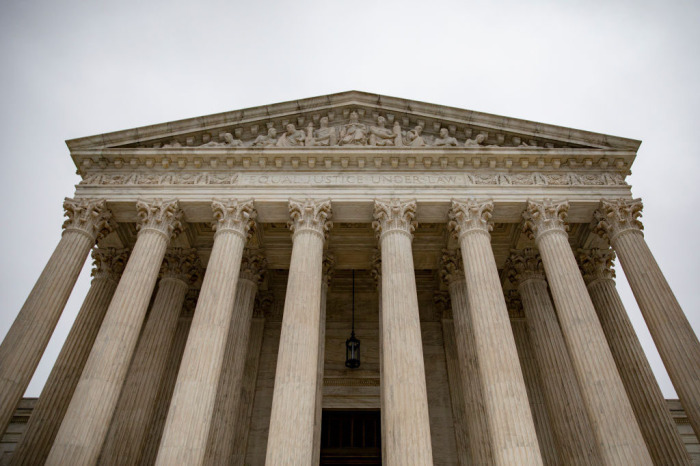Can Christian schools qualify for a state tax credit? Supreme Court hears arguments

The U.S. Supreme Court heard oral arguments on a case centered on whether religious schools in Montana can qualify for a state tax credit on scholarships.
Attorneys presented their arguments before the high court on Wednesday in the case of Espinoza v. Montana Department of Revenue. At issue was a group of parents whose children attended religious schools, suing the state to allow for the tax credit to be used for private religious school scholarships.
Diana Verm, senior counsel with Becket, whose organization filed an amicus brief in the case on behalf of the plaintiffs, told The Christian Post that she “thought that the argument went well.”
“It was clear that at bottom, the justices realized that this case is about religious discrimination, and they grappled with the question of whether the state can take away a state benefit just because people can use that benefit at a religious school,” said Verm.
Verm also noted that the Supreme Court justices appeared interested by the history behind Montana’s state constitutional amendment prohibiting government funding of any religious entities, including schools.
Known as a Blaine Amendment, Montana is one of 36 states to have such provisions in their constitutions. Critics, including groups like Becket, argue that they are religiously bigoted, having been created to prevent state funding of Catholic schools.
“At one point, Justice Kavanaugh asked counsel for Montana about the ‘grotesque religious bigotry against Catholics’ that gave rise to the Blaines,” noted Verm. “Those are strong words.”
Verm is optimistic that the high court will “do the right thing in this case and rule in favor of Kendra Espinoza” and the other parents.
Alex Luchenitser, associate legal director of Americans United for Separation of Church and State who was present to hear the arguments, told CP that the court “appeared troubled in various ways by the arguments made by proponents of the voucher program.”
“Some of the justices, including Chief Justice John Roberts, expressed concern about whether it would be procedurally improper for the Supreme Court to decide the case,” explained Luchenitser.
“Specifically, some of the justices pointed out that because the Montana Supreme Court struck down the voucher program in its entirety, there was no discrimination between religious and secular private schools, while other justices noted that voucher payments are made directly to private schools, but no private schools are parties to the case.”
Americans United filed an amicus brief along with 17 other organizations in favor of the Supreme Court affirming a lower court ruling against the tax credit for religious schools.
Luchenitser went on to explain that Justices Elena Kagan, Sonia Sotomayor, and Stephen Breyer had all expressed concerns about the tax credit for scholarships including sectarian schools.
“Kagan also emphasized that government funding can impose burdens and costs on religious institutions, lead to religious divisiveness and violate taxpayers’ freedom of conscience,” he recalled.
“Breyer expressed concern that a ruling in favor of the voucher proponents in this case would be a step toward requiring any governmental body that funds public education to equally fund religious education.”
Regarding a possible outcome, Luchenitser felt that “whichever way the Supreme Court rules, it is likely that the vote will be very close.”
In 2015, Montana passed Senate Bill 410, which allowed tax credits for donations of up to $150 to either private school scholarships or educational programs in public schools.
Initially, the state prohibited religious schools from participating, citing Article X, Section 6 of Montana’s constitution, which bars public funds from going to “any sectarian purpose or to aid any church, school, academy, seminary, college, university, or other literary or scientific institution, controlled in whole or in part by any church, sect, or denomination.”
In response, a group of parents filed suit and in 2016, a judge issued a preliminary injunction, allowing students at religious schools to receive the scholarships.
In December 2018, the Montana Supreme Court ruled 5-2 that the tax credit program violated the state constitution and struck it down.
“We conclude that Montana’s Constitution more broadly prohibits ‘any’ state aid to sectarian schools and draws a ‘more stringent line than that drawn’ by its federal counterpart,” read the majority opinion.
“The Legislature, by enacting a statute that provides a dollar-for-dollar credit against taxes owed to the state, is the entity providing aid to sectarian schools via tax credits in violation of Article X, Section 6.”
Last July, the U.S. Supreme Court agreed to hear oral arguments in the case, with the legal group Alliance Defending Freedom expressing optimism at the granting of appeal.
“At a minimum, the Court appears ready to say that religious schools cannot be discriminated against in a state tax-credit program,” stated John Bursch of the ADF to CP last year.
“We’re hopeful that the Court says that all state actions discriminating against religious schools are unconstitutional.”




























